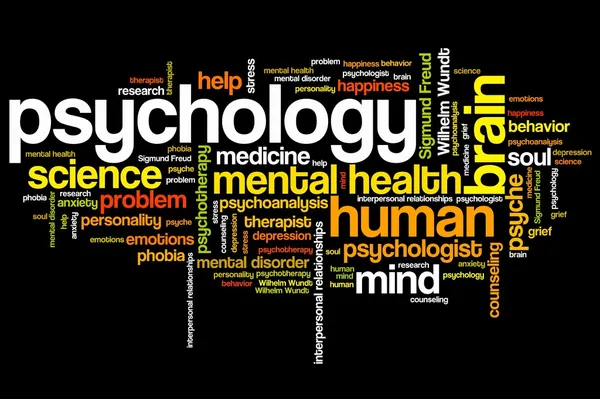
Human psychology is a vast and intricate field, delving into the depths of the human mind and attempting to decipher its inner workings. Whether it’s exploring the complexities of behavior, understanding the motivations driving our actions, or unraveling the intricacies of thought processes, psychology sheds light on the hidden forces that shape our experiences. From the earliest theories of Sigmund Freud to the contemporary advancements in cognitive neuroscience, psychology has made remarkable strides in unraveling the mysteries of the human mind.
One of the fundamental aspects of psychology is its focus on understanding human behavior. The way we act, react, and interact with the world around us is a fascinating puzzle waiting to be solved. Through the lens of psychology, we can explore the various factors that influence behavior, be it genetics, upbringing, or external stimuli. It is through this exploration that we gain insights into why we behave the way we do, and how we can make positive changes to our lives.
Beyond behavior, psychology delves into the intricacies of thought processes and the complexities of the human mind. From studying memory and learning to examining perception and decision-making, psychologists seek to unravel the processes that underlie our mental functions. By understanding these cognitive processes, we gain insights into how we perceive the world, make judgments, and form beliefs, ultimately providing a deeper understanding of what it means to be human.
In this article, we will embark on a journey to unravel the hidden forces of the human mind. We will explore the diverse areas of psychology, from the study of individual differences to the exploration of social influences. Through this exploration, we hope to shed light on the intricacies of the human mind, providing a greater understanding of ourselves and the world we inhabit. Join us as we dive into the depths of psychology, unearthing the complexities that make us who we are.
Exploring the Subconscious Mind
The subconscious mind plays a vital role in understanding human psychology. It is the hidden realm within us that affects our thoughts, emotions, and actions in ways we might not even realize. This intricate aspect of the human mind holds immense power, shaping our experiences and influencing our behavior.
Underneath our conscious awareness lies a vast reservoir of thoughts, memories, and desires that make up the subconscious mind. It consists of the deep-seated beliefs, fears, and motivations that shape our perception of reality. While we may not be actively aware of its workings, the subconscious mind constantly processes information and influences our decisions.
One of the fascinating characteristics of the subconscious mind is its ability to store and retrieve memories. Past experiences, even those long forgotten in our conscious mind, leave an indelible mark on our subconscious. These memories can subtly shape our behavior and reactions to certain situations, sometimes without us even realizing it.
Furthermore, the subconscious mind houses our most instinctual and primal urges. It governs our automatic responses, such as fight or flight, and influences our behaviors in ways that can be both helpful and detrimental. Understanding and harnessing the power of the subconscious mind can lead to a deeper comprehension of ourselves and our behaviors.
In conclusion, the subconscious mind is a vast and complex realm that holds the key to understanding the intricacies of human psychology. Exploring this hidden force within us can help us uncover the underlying motivations and influences that shape our thoughts, emotions, and actions. By delving into the depths of our subconscious, we can gain valuable insights into our own behaviors and improve our understanding of the human mind.
Understanding Cognitive Processes
Cognitive processes are the mental activities that we engage in every day, allowing us to perceive, think, and make decisions. These processes are crucial for our understanding of the world around us and how we interact with it.
One important cognitive process is attention. It is the ability to focus our awareness on specific stimuli while filtering out irrelevant information. Attention plays a vital role in our ability to concentrate, learn, and solve problems. Whether we are scanning a crowded room or reading a book, attention allows us to selectively process the information that is most relevant to our goals.
Another key cognitive process is memory. Memory enables us to encode, store, and retrieve information. It allows us to retain knowledge and experiences, which influence our thoughts, actions, and behaviors. Our memory can be short-term, holding information temporarily, or long-term, storing information for extended periods. Understanding how memory works can be beneficial in improving learning and retention.
Lastly, cognitive processes include thinking and problem-solving. We use these processes to analyze, evaluate, and generate ideas. Thinking involves mental activities such as reasoning, decision making, and judgment. Problem-solving, on the other hand, is the process of finding solutions to unfamiliar or challenging situations. These cognitive processes are essential for our ability to make informed choices and overcome obstacles.
In conclusion, cognitive processes form the foundation for our understanding of the human mind. Attention, memory, thinking, and problem-solving are fundamental components of how we perceive, process, and interact with the world. By unraveling the intricacies of these processes, we can gain valuable insights into psychology and how the mind works.
Unmasking Behavioral Patterns
Recognizing and understanding behavioral patterns is a fundamental aspect of psychology. Through careful observation and analysis, psychologists aim to unveil the hidden forces that shape human behavior. By examining various influences and motivations, we can gain valuable insights into the complexities of the human mind.
Psychologist Melbourne
One common behavioral pattern is known as classical conditioning. This concept, originally explored by Ivan Pavlov, demonstrates how individuals can form associations between stimuli and responses. For example, if a person repeatedly hears a specific sound before a rewarding experience, they may start to associate that sound with pleasure. Over time, this association can lead to a conditioned response, where the individual exhibits a particular behavior in anticipation of the pleasurable outcome.
Another crucial aspect of understanding behavioral patterns is exploring operant conditioning. This theory, pioneered by B.F. Skinner, emphasizes the role of consequences in shaping behavior. When an action is followed by a positive reinforcement, such as praise or a reward, individuals are more likely to repeat that behavior in the future. Conversely, if an action results in a negative consequence, such as punishment or criticism, the likelihood of that behavior being repeated decreases. Through this process, individuals learn to associate their actions with certain outcomes, influencing their behavior accordingly.
A third key concept in unraveling behavioral patterns is the study of cognitive biases. These biases, which are often subconscious, can significantly impact decision-making and behavior. Confirmation bias, for instance, leads individuals to seek out information that supports their existing beliefs while ignoring or downplaying conflicting evidence. Similarly, the availability heuristic causes people to rely on immediate examples or easily accessible information when making judgments or decisions. By recognizing and understanding these cognitive biases, psychologists can better comprehend the underlying motivations and reasoning behind human behavior.
In conclusion, through the exploration of classical conditioning, operant conditioning, and cognitive biases, psychologists can begin to unmask the intricate behavioral patterns that govern our actions. By delving deeper into these hidden forces, we can gain a more comprehensive understanding of the complexities of the human mind and ultimately contribute to the advancement of psychology as a discipline.





